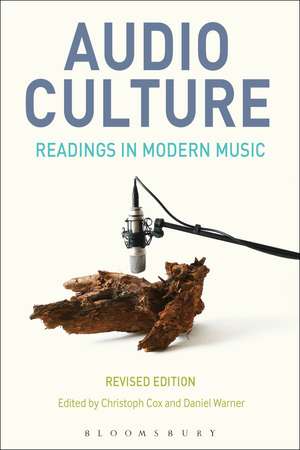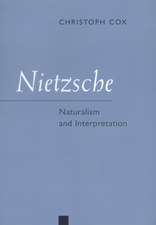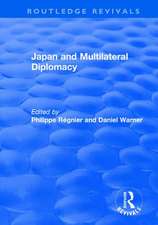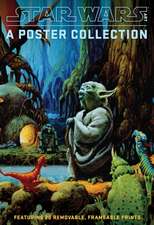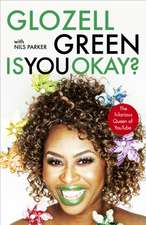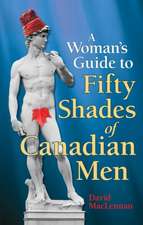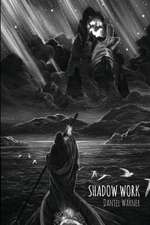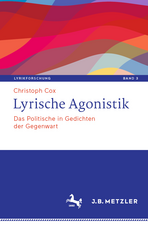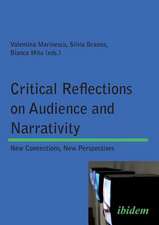Audio Culture, Revised Edition: Readings in Modern Music
Editat de Professor Christoph Cox, Daniel Warneren Limba Engleză Paperback – 6 sep 2017
| Toate formatele și edițiile | Preț | Express |
|---|---|---|
| Paperback (1) | 262.87 lei 3-5 săpt. | |
| Bloomsbury Publishing – 6 sep 2017 | 262.87 lei 3-5 săpt. | |
| Hardback (1) | 841.80 lei 6-8 săpt. | |
| Bloomsbury Publishing – 6 sep 2017 | 841.80 lei 6-8 săpt. |
Preț: 262.87 lei
Preț vechi: 328.93 lei
-20% Nou
Puncte Express: 394
Preț estimativ în valută:
50.30€ • 53.79$ • 41.94£
50.30€ • 53.79$ • 41.94£
Carte disponibilă
Livrare economică 27 martie-10 aprilie
Preluare comenzi: 021 569.72.76
Specificații
ISBN-13: 9781501318368
ISBN-10: 1501318365
Pagini: 664
Dimensiuni: 152 x 229 mm
Greutate: 0.95 kg
Ediția:2
Editura: Bloomsbury Publishing
Colecția Bloomsbury Academic
Locul publicării:New York, United States
ISBN-10: 1501318365
Pagini: 664
Dimensiuni: 152 x 229 mm
Greutate: 0.95 kg
Ediția:2
Editura: Bloomsbury Publishing
Colecția Bloomsbury Academic
Locul publicării:New York, United States
Caracteristici
Collects together writing by some of the most important musical thinkers of the past half-century
Notă biografică
Christoph Cox is Professor of Philosophy at Hampshire College, USA. He is the author of Sonic Flux: Sound, Art, and Metaphysics and Nietzsche: Naturalism and Interpretation, and co-editor of Realism Materialism Art. Daniel Warner is Professor of Music at Hampshire College, USA. He is a composer, electronic artist, and author of Live Wires: A History of Electronic Music.
Cuprins
AcknowledgmentsIntroduction Part One: Theories I. Music and Its Others: Noise, Sound, SilenceIntroduction1. Jacques Attali, "Noise and Politics"2. Luigi Russolo, "The Art of Noises: Futurist Manifesto"3. Edgard Varèse, "The Liberation of Sound"4. Henry Cowell, "The Joys of Noise"5. John Cage, "The Future of Music: Credo"6. R. Murray Schafer, "The Music of the Environment"7. Anne Carson, "The Gender of Sound"8. Drew Daniel, "Queer Sound"9. Kevin Quashie, "The Quiet of Blackness: Miles Davis and John Coltrane"II. Modes of ListeningIntroduction10. Marshall McLuhan, "Visual and Acoustic Space"11. Pierre Schaeffer, "Acousmatics"12. Francisco Lopez, "Profound Listening and Environmental Sound Matter"13. Brian Eno, "Ambient Music"14. Pauline Oliveros, "Auralizing the Sonosphere"15. Maryanne Amacher, "Perceptual Geography: Third Ear Music and Structure Borne Sound"16. Evelyn Glennie, "Hearing Essay"17. Iain Chambers, "The Aural Walk"18. Annahid Kassabian, "Ubiquitous Listening"19. Lawrence Abu Hamdan, "Forensic Listening"20. Ultra-red, "Organizing the Silence"III. Music in the Age of Electronic ReproductionIntroduction21. Glenn Gould, "The Prospects of Recording"22. Brian Eno, "The Studio as Compositional Tool"23. John Oswald, "Bettered by the Borrower: The Ethics of Musical Debt"24. Chris Cutler, "Plunderphonia"25. Kodwo Eshun, "Operating System for the Redesign of Sonic Reality"26. Kenneth Goldsmith, "Six File-Sharing Epiphanies"27. Tara Rodgers, "Cultivating Activist Lives in Sound"Part Two: Practices IV. The Open WorkIntroduction28. Umberto Eco, "Poetics of the Open Work"29. John Cage, "Composition as Process: Indeterminacy"30. Christoph Cox, "Every Sound You Can Imagine: On Graphic Scores"31. Earle Brown, "Transformations and Developments of a Radical Aesthetic"32. John Zorn, "The Game Pieces"33. Anthony Braxton, "Introduction to Catalog of Works"34. Lawrence "Butch" Morris, "Notes on Conduction" V. Experimental MusicsIntroduction35. Michael Nyman, "Towards (a Definition of) Experimental Music"36. John Cage, "Introduction to Themes & Variations"37. Brian Eno, "Generating and Organizing Variety in the Arts"38. Cornelius Cardew, Scratch Music Draft Constitution39. David Toop, "The Generation Game: Experimental Music and Digital Culture"40. Jennifer Walshe on "The New Discipline"41. Yan Jun, "Re-Invent: Experimental Music in China" VI. Improvised MusicsIntroduction42. Ornette Coleman, "Change of the Century"43. Wadada Leo Smith, "Notes (8 Pieces): Creative Music"44. Derek Bailey, "Free Improvisation"45. Frederic Rzewski, "Little Bangs: A Nihilist Theory of Improvisation"46. George E. Lewis, "Improvised Music After 1950: Afrological and Eurological Perspectives"47. Vijay Iyer, "Improvisation: Terms and Conditions"48. Mattin, "Going Fragile"49. Trio Sowari et al., "27 Questions For a Start . And Some Answers to Begin With"VII. MinimalismsIntroduction50. Kyle Gann, "Thankless Attempts at a Definition of Minimalism"51. Wim Mertens, "Basic Concepts of Minimal Music"52. Steve Reich, "Music as a Gradual Process"53. La Monte Young and Marian Zazeela, "Conversation with Richard Kostelanetz"54. Tony Conrad, "LYssophobia: On Four Violins"55. Susan McClary, "Rap, Minimalism and Structures of Time in Late Twentieth-Century Culture"56. Philip Sherburne, "Draw a Straight Line and Follow It: Minimalism in Contemporary Electronic Dance Music"VIII. DJ Culture Introduction57. László Moholy-Nagy, "Production-Reproduction: Potentialities of the Phonograph"58. Situationist International, "Détournement as Negation and Prelude"59. William S. Burroughs, "The Invisible Generation"60. Paul D. Miller, "Algorithms: Erasures and the Art of Memory"61. David Toop, "Replicant: On Dub"62. Simon Reynolds, "Post-Rock"63. Marina Rosenfeld, "A Few Notes on Production and Playback"IX. Electronic Music and ElectronicaIntroduction64. Jacques Barzun, "Introductory Remarks to a Program of Works Produced at the Columbia-Princeton Electronic Music Center"65. Karlheinz Stockhausen, "Electronic and Instrumental Music"66. Karlheinz Stockhausen et al., "Stockhausen vs. the Technocrats"67. Eliane Radigue, "The Mysterious Power of the Infinitesimal"68. Kim Cascone, "The Aesthetics of Failure: 'Post-Digital' Tendencies in Contemporary Computer Music"69. Holly Herndon, "Laptop Intimacy and Platform Politics"BibliographyChronologyDiscographyGlossaryIndex of QuotationsIndex
Recenzii
[Audio Culture, Revised Edition] is often so stimulating that you're swept along and back into the music itself - and for those with a hunch that a whole world of sound exists beyond the concert hall, here's your entry point.
[Audio Culture] is an indispensable primer full of the theories behind noise, Free-jazz, minimalism, 20th century composition, ambient, avant-garde and all the other crazy shit your square-ass friends can't believe you actually like. With writing and interviews from all the players in question (quoting Stockhausen is five points in hipster bingo), this book deconstructs all the essential ideas: Cage's themes, Eno's strategies, Zorn's games and Merzbow's undying love of porno.
Audio Culture is the best introduction to the long historical fades and theoretical jumpcuts of what millions in the 21st C. now listen to as music: overwhelming noise and disturbed silences, unfettered Improv and indeterminate obstacles, the performance of recording, electricity, eclectics, mistakes and just the thought of music.
The contributors include composers from the worlds of avant-garde classical music, pop, and jazz--e.g. John Cage, Karlheinz Stockhausen, and Pauline Oliveros--as well as cultural historians like Marshall McLuhan and Jacques Barzun and literary experimentalists such as William Burroughs....Students of contemporary music will find this compendium useful.
Audio Culture is a book to provoke thought ... This is an excellent selection of texts.
It's a hideous fate to wish on an anthology as fine as Audio Culture, but if anyone's planning a college course on modern music, they couldn't find a better set text ... All in all, a wonderful book ... The glossary, bibliography and discography are exemplary, guaranteeing Audio Culture is going to be used rather than merely dipped or cribbed. Though you can bet that'll be happening to it as well.
Audio Culture's assemblage of key writings, texts, and manifestos spanning over a century tells that story better than just about anything else in print, while discovering new tributaries in the process.
This is a book that should be read in its totality - it's truly absorbing stuff.
Ever wondered how modern music in all its mesmerizing diversity really works? If so, then this is the book for you ... An endlessly fascinating read, a major reference resource, and great value for the money.
Eminently readable ... Experimental music enthusiasts and the pipe-and-elbow patch crowd should find plenty in here to peak their interest ... Audio Culture doesn't limit itself to traditional ways of looking at music, just as it doesn't limit its rogue's gallery of contributors ... Topics such as minimalist compositions and noise-based music are finally given some long-overdue critical attention.
Audio Culture: Readings in Modern Music is a cannily collected anthology of seminal music writing, your one-stop shopping destination for ear-opening essays on the nature and recent history of music. The obligatory pioneers and almost-pop icons are all there ... Audio Culture coeditors Christoph Cox and Daniel Warner range boldly and widely, embracing noise, soundscape listening, minimalism, glitch, plunderphonics, and collective music making ... Audio Culture passes the test of a good music book: It's easy to read, insightful, and inspiring.
Growing steadily alongside a music-writing canon loaded with the likes of Greil Marcus and Lester Bangs, the body of work sampled in Audio Culture wanders far afield from rock and ponders questions that are less than concerned with ideals of human expression. In this sphere of influence, John Cage is Elvis Presley, Brian Eno's cerebral musings trump Lou Reed's tangy antagonism, sonics mean more than lyrics, and movements have yet to be surveyed entirely through a year view ... The best book of its kind, Audio Culture compiles essays and excerpts from artists, critics, and academics given to staring down music with no eyes to return the gaze ... From there, Audio Culture spreads to survey various facets of music and its production, and interpretation. The table of contents reads like a greatest-hits collection: Cage, Eno, Ornette Coleman, Steve Reich, David Toop, Kodwo Eshun, Simon Reynolds ... Audio Culture dangles intellectual threads fit to tie lifers and open-eared wonderers alike.
To be honest, no one looking at the collection of 57 well-chosen essays written by some of the biggest names in music and reprinted from books and publications well-noted for their contribution to music theory will be able to resist reading and buying the book. In fact, there is just so much that makes this book valuable that it is difficult to name them all. Both the content and the structure of Audio Culture add to its strength ... The end result is a complete and cohesive treatment of modern music. Anyone who has edited a collection knows that such an outcome is not an easy one to attain, but it is certainly achieved here ... With growing interest in sound on web-based environments and the ease with which to produce it, Cox and Warner's Audio Culture stands as a must-read for both aspiring artists and music theorists alike.
Writings on the new music are frequently hidden away in hard-to-find, ephemeral publications, so a collection like this is welcome just by the fact that it brings all these items together ... A collection like this encourages us to realize how really vibrant and successful new music has been and continues to be - both because of and in spite of its 'marginality' - and how fortunate we are to live in a time of its ascendancy. Cox and Warner have included well-organized discographies and bibliographies, and provide brief introductions to the individual entries, giving some background to each author's work and ideas. Audio Culture will certainly be a useful teaching tool in the field of cultural studies, aesthetics and musicology; and fans and devotees of new music will find a lot here to mull over as well.
In Audio Culture, editors Christoph Cox and Daniel Warner bring to readers an educated, timely and much needed critical perspective of our contemporary musical experience through the writings of some of the most important musical thinkers, including Jacques Attali, John Cage, Umberto Eco, Brian Eno, Karlheinz Stockhausen, Edgar Varese, just to name a few. Audio Culture offers a collection of essays that filter a range of experimental musical practices in an unusually refreshing way. Maybe not since Gregory Whitehead's reader Wireless Imagination (1994) which recorded the 'silent' history of audio, has literature on this subject sufficiently captured the attention of both the sound enthusiasts and academics at the same time ... The result is an elegant anthology that compiles the manifestos of 'old masters' such as Italian Futurist Luigi Russolo and statements by Edgard Varese and John Cage while also spotlighting an interview on integration of technology into artistic production by Christian Marclay... It is to the credit of the book that it keeps up with the most interesting key texts and ideas in the field and does not make a huge demand on our Windows-culture-inflicted patience. The book is ambitious enough to cater to a broader audience and manages to respond to the numerous demands made upon it....makes the writings very accessible to readers who are not familiar with the author or topic under discussion. Texts and ideas come from a variety of sources ... Audio Culture succinctly captures the last fifty years that has been the most fascinating times for avant-garde experimentation, performances and sonic landscapes, By treating the existing rhizomic dots and lines between myriads of practices in a progressive fashion, it gives the last decade ... its attention and maybe its future vocabulary.
...offers a collection of essays that filter a range of experimental musical practices in an unusually refreshing way....an intriguing selection of articles from a range of significant radio-sonic heroes as well as important thinkers and philosophers...an elegant anthology...ambitious... Audio Culture guides the readers an intellectual journey from the year 1877 when the first recording fundamentally transformed sound, towards almost better understanding our present culture of omnipresent ipod-users, polyphonic cell-phone ringers and Bjork's Medula, helping both the experts and enthusiasts to new ways of thinking, tracing, developing and presenting audio culture.
Cox's and Warner's book is a wonderfully accessible anthology of essential readings for anyone-academics and enthusiasts alike-interested in the histories of experimental music and sound art.
Cox and Warner's book is warmly recommended. It's highly unlikely that readers will have original copies of all the books and articles featured therein, so the simple fact that the editors have gone to the trouble of bringing them together in one volume is to be praised to the skies....Audio Culture is well worth the price of admission for the writings of Russolo, Cowell, Cage, Schafer, McLuhan, Reynolds, Eno and Cutler, to name but a few.
This updated collection remains the essential Baedeker for a woolly cultural landscape in which sound has proven itself to be so much more than just "music". The historic range, aesthetic breadth, and diversity of contributors give the volume singular value in the growing field of sound studies.
Audio Culture is an indispensable resource not only in understanding the contexts and underpinnings of so much music - be it contemporary classical, jazz and improv, electronic music, hip hop and beyond, but also in showing how ideas around music and sound are part of a much wider cultural conversation. The book is brilliantly researched, well structured and includes fascinating reads and insights.
[Audio Culture] is an indispensable primer full of the theories behind noise, Free-jazz, minimalism, 20th century composition, ambient, avant-garde and all the other crazy shit your square-ass friends can't believe you actually like. With writing and interviews from all the players in question (quoting Stockhausen is five points in hipster bingo), this book deconstructs all the essential ideas: Cage's themes, Eno's strategies, Zorn's games and Merzbow's undying love of porno.
Audio Culture is the best introduction to the long historical fades and theoretical jumpcuts of what millions in the 21st C. now listen to as music: overwhelming noise and disturbed silences, unfettered Improv and indeterminate obstacles, the performance of recording, electricity, eclectics, mistakes and just the thought of music.
The contributors include composers from the worlds of avant-garde classical music, pop, and jazz--e.g. John Cage, Karlheinz Stockhausen, and Pauline Oliveros--as well as cultural historians like Marshall McLuhan and Jacques Barzun and literary experimentalists such as William Burroughs....Students of contemporary music will find this compendium useful.
Audio Culture is a book to provoke thought ... This is an excellent selection of texts.
It's a hideous fate to wish on an anthology as fine as Audio Culture, but if anyone's planning a college course on modern music, they couldn't find a better set text ... All in all, a wonderful book ... The glossary, bibliography and discography are exemplary, guaranteeing Audio Culture is going to be used rather than merely dipped or cribbed. Though you can bet that'll be happening to it as well.
Audio Culture's assemblage of key writings, texts, and manifestos spanning over a century tells that story better than just about anything else in print, while discovering new tributaries in the process.
This is a book that should be read in its totality - it's truly absorbing stuff.
Ever wondered how modern music in all its mesmerizing diversity really works? If so, then this is the book for you ... An endlessly fascinating read, a major reference resource, and great value for the money.
Eminently readable ... Experimental music enthusiasts and the pipe-and-elbow patch crowd should find plenty in here to peak their interest ... Audio Culture doesn't limit itself to traditional ways of looking at music, just as it doesn't limit its rogue's gallery of contributors ... Topics such as minimalist compositions and noise-based music are finally given some long-overdue critical attention.
Audio Culture: Readings in Modern Music is a cannily collected anthology of seminal music writing, your one-stop shopping destination for ear-opening essays on the nature and recent history of music. The obligatory pioneers and almost-pop icons are all there ... Audio Culture coeditors Christoph Cox and Daniel Warner range boldly and widely, embracing noise, soundscape listening, minimalism, glitch, plunderphonics, and collective music making ... Audio Culture passes the test of a good music book: It's easy to read, insightful, and inspiring.
Growing steadily alongside a music-writing canon loaded with the likes of Greil Marcus and Lester Bangs, the body of work sampled in Audio Culture wanders far afield from rock and ponders questions that are less than concerned with ideals of human expression. In this sphere of influence, John Cage is Elvis Presley, Brian Eno's cerebral musings trump Lou Reed's tangy antagonism, sonics mean more than lyrics, and movements have yet to be surveyed entirely through a year view ... The best book of its kind, Audio Culture compiles essays and excerpts from artists, critics, and academics given to staring down music with no eyes to return the gaze ... From there, Audio Culture spreads to survey various facets of music and its production, and interpretation. The table of contents reads like a greatest-hits collection: Cage, Eno, Ornette Coleman, Steve Reich, David Toop, Kodwo Eshun, Simon Reynolds ... Audio Culture dangles intellectual threads fit to tie lifers and open-eared wonderers alike.
To be honest, no one looking at the collection of 57 well-chosen essays written by some of the biggest names in music and reprinted from books and publications well-noted for their contribution to music theory will be able to resist reading and buying the book. In fact, there is just so much that makes this book valuable that it is difficult to name them all. Both the content and the structure of Audio Culture add to its strength ... The end result is a complete and cohesive treatment of modern music. Anyone who has edited a collection knows that such an outcome is not an easy one to attain, but it is certainly achieved here ... With growing interest in sound on web-based environments and the ease with which to produce it, Cox and Warner's Audio Culture stands as a must-read for both aspiring artists and music theorists alike.
Writings on the new music are frequently hidden away in hard-to-find, ephemeral publications, so a collection like this is welcome just by the fact that it brings all these items together ... A collection like this encourages us to realize how really vibrant and successful new music has been and continues to be - both because of and in spite of its 'marginality' - and how fortunate we are to live in a time of its ascendancy. Cox and Warner have included well-organized discographies and bibliographies, and provide brief introductions to the individual entries, giving some background to each author's work and ideas. Audio Culture will certainly be a useful teaching tool in the field of cultural studies, aesthetics and musicology; and fans and devotees of new music will find a lot here to mull over as well.
In Audio Culture, editors Christoph Cox and Daniel Warner bring to readers an educated, timely and much needed critical perspective of our contemporary musical experience through the writings of some of the most important musical thinkers, including Jacques Attali, John Cage, Umberto Eco, Brian Eno, Karlheinz Stockhausen, Edgar Varese, just to name a few. Audio Culture offers a collection of essays that filter a range of experimental musical practices in an unusually refreshing way. Maybe not since Gregory Whitehead's reader Wireless Imagination (1994) which recorded the 'silent' history of audio, has literature on this subject sufficiently captured the attention of both the sound enthusiasts and academics at the same time ... The result is an elegant anthology that compiles the manifestos of 'old masters' such as Italian Futurist Luigi Russolo and statements by Edgard Varese and John Cage while also spotlighting an interview on integration of technology into artistic production by Christian Marclay... It is to the credit of the book that it keeps up with the most interesting key texts and ideas in the field and does not make a huge demand on our Windows-culture-inflicted patience. The book is ambitious enough to cater to a broader audience and manages to respond to the numerous demands made upon it....makes the writings very accessible to readers who are not familiar with the author or topic under discussion. Texts and ideas come from a variety of sources ... Audio Culture succinctly captures the last fifty years that has been the most fascinating times for avant-garde experimentation, performances and sonic landscapes, By treating the existing rhizomic dots and lines between myriads of practices in a progressive fashion, it gives the last decade ... its attention and maybe its future vocabulary.
...offers a collection of essays that filter a range of experimental musical practices in an unusually refreshing way....an intriguing selection of articles from a range of significant radio-sonic heroes as well as important thinkers and philosophers...an elegant anthology...ambitious... Audio Culture guides the readers an intellectual journey from the year 1877 when the first recording fundamentally transformed sound, towards almost better understanding our present culture of omnipresent ipod-users, polyphonic cell-phone ringers and Bjork's Medula, helping both the experts and enthusiasts to new ways of thinking, tracing, developing and presenting audio culture.
Cox's and Warner's book is a wonderfully accessible anthology of essential readings for anyone-academics and enthusiasts alike-interested in the histories of experimental music and sound art.
Cox and Warner's book is warmly recommended. It's highly unlikely that readers will have original copies of all the books and articles featured therein, so the simple fact that the editors have gone to the trouble of bringing them together in one volume is to be praised to the skies....Audio Culture is well worth the price of admission for the writings of Russolo, Cowell, Cage, Schafer, McLuhan, Reynolds, Eno and Cutler, to name but a few.
This updated collection remains the essential Baedeker for a woolly cultural landscape in which sound has proven itself to be so much more than just "music". The historic range, aesthetic breadth, and diversity of contributors give the volume singular value in the growing field of sound studies.
Audio Culture is an indispensable resource not only in understanding the contexts and underpinnings of so much music - be it contemporary classical, jazz and improv, electronic music, hip hop and beyond, but also in showing how ideas around music and sound are part of a much wider cultural conversation. The book is brilliantly researched, well structured and includes fascinating reads and insights.
